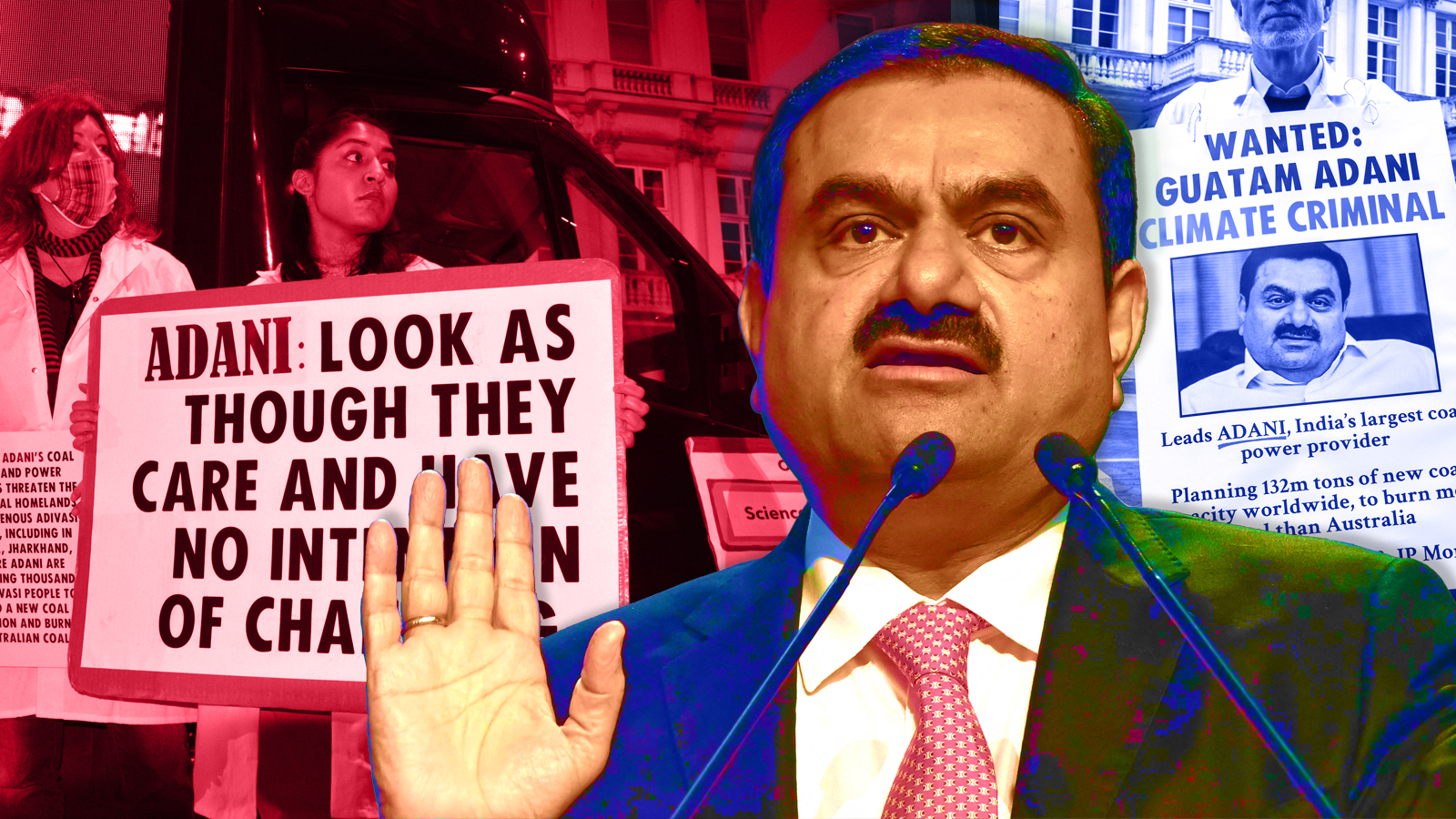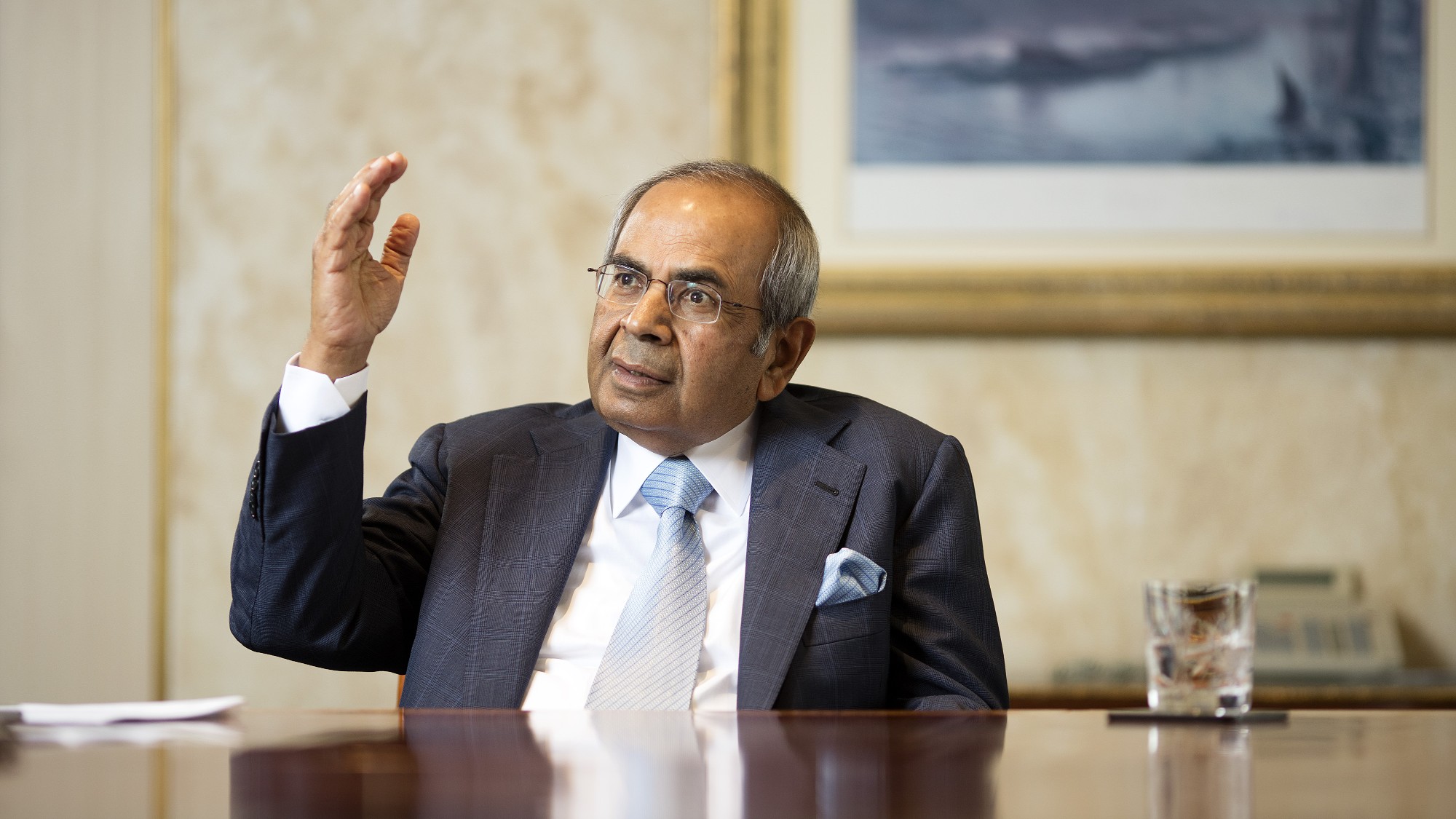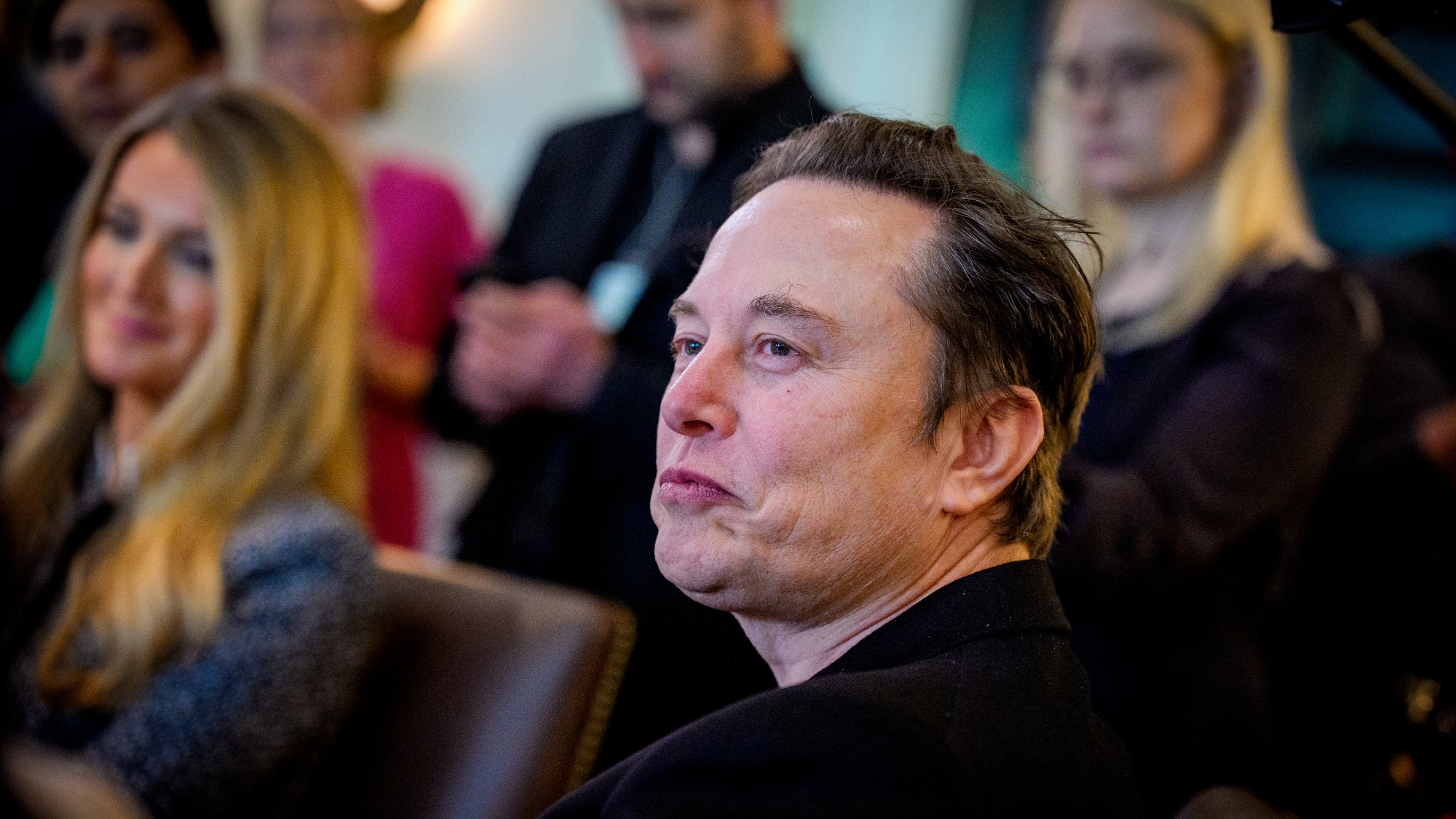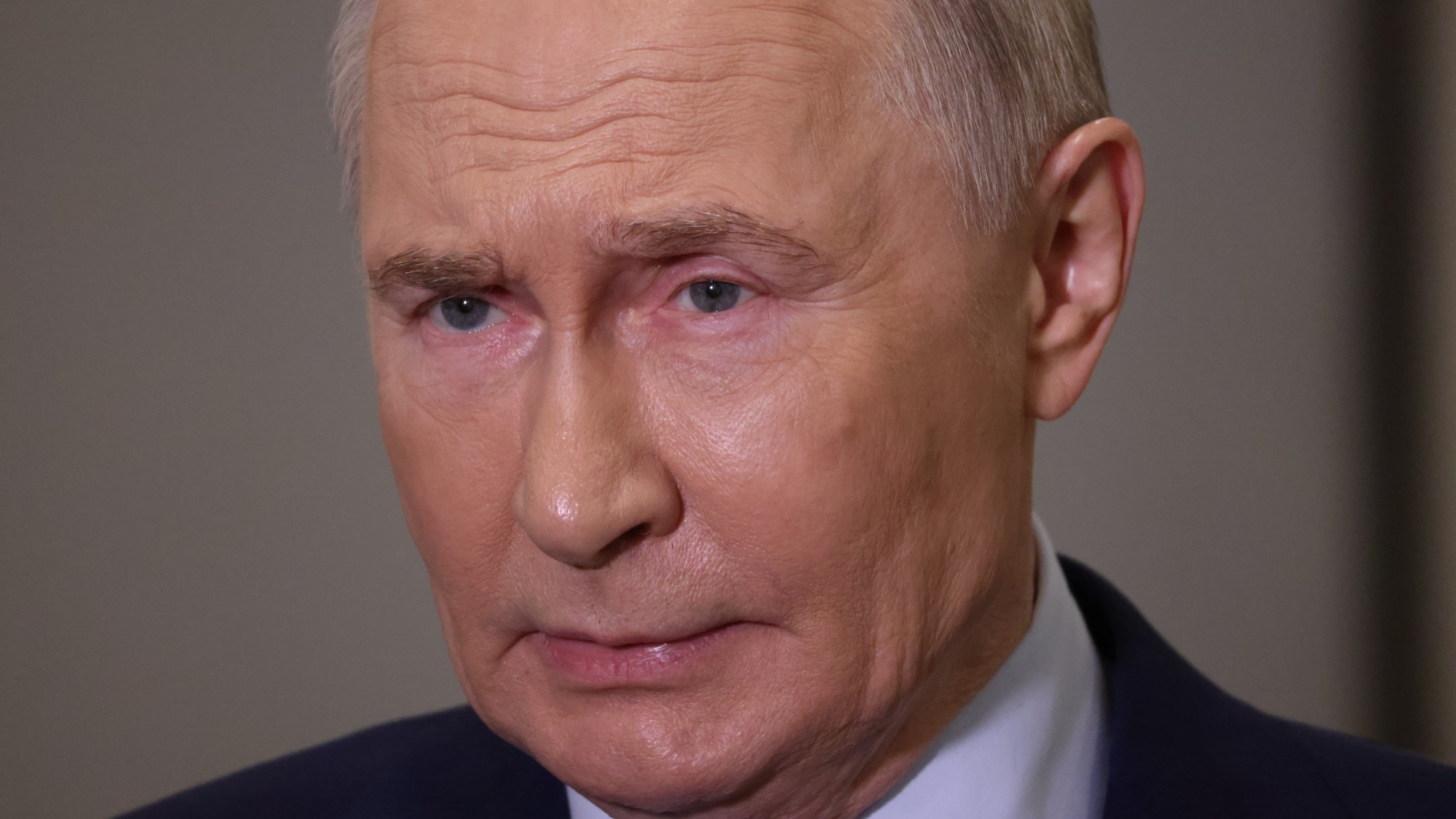The Adani Group scandal, explained
The Indian conglomerate is accused of perpetuating 'the largest con in corporate history'


A free daily email with the biggest news stories of the day – and the best features from TheWeek.com
You are now subscribed
Your newsletter sign-up was successful
Indian billionaire Gautam Adani is in hot water after an activist investment firm published a report alleging large-scale corruption and malfeasance across his multinational conglomerate, Adani Group. Here's what you need to know:
What's happening?
On Jan. 24, Hindenburg Research — a small firm run by short-seller Nathan Anderson — published a 100-page report accusing the Adani Group, a conglomerate founded by Indian businessman Guatam Adani, of perpetuating "the largest con in corporate history." The report claimed the group was "engaged in a brazen stock-manipulation and accounting-fraud scheme," and vastly overstated its companies' valuations in an attempt to "maintain the appearance of financial health and solvency" despite mounting debts. Hindenburg also disclosed that it had taken a so-called "short" position against the tycoon's companies, betting that the conglomerate's stock price would drop to the benefit of the firm.
Since the report was released, the Adani Group has lost over $100 billion in market value, while Adani's personal net worth has plummeted by over $50 billion. Further, the allegations "upended" the group's "much-anticipated" secondary share offering, The Economist explains: The group was attempting to raise $2.5 billion in a stock offer that expired Jan. 31, though it ultimately canceled the sale on Feb. 1 after its stock plummeted almost 30 percent. The money raised from the sale will be returned to investors.
The Week
Escape your echo chamber. Get the facts behind the news, plus analysis from multiple perspectives.

Sign up for The Week's Free Newsletters
From our morning news briefing to a weekly Good News Newsletter, get the best of The Week delivered directly to your inbox.
From our morning news briefing to a weekly Good News Newsletter, get the best of The Week delivered directly to your inbox.
Who is Gautam Adani?
Adani, 60, is the owner and founder of the Adani Group, a multinational conglomerate comprised of at least seven publicly-traded companies across a number of verticals, including infrastructure, mining, and renewable energy. And though he's "relatively unknown" in other parts of the world, the prolific billionaire is an industry giant back home, where he also controls the country's largest port. But once Asia's richest man, Adani is now no longer even India's, his worth having plunged in the wake of Hinderburg's missive. Indeed, the firm "could not have selected a bigger whale," writes The Economist. "Adani is widely regarded as a master operator, with a genius for navigating the complicated legal and political landscape of Indian capitalism."
How has the Adani Group responded?
The group denounced Hinderberg's report as "baseless" and "malicious," and accused the firm of having an "ulterior motive" for publishing the document. "This is rife with conflict of interest and intended only to create a false market in securities to enable Hindenburg, an admitted short seller, to book massive financial gain through wrongful means at the cost of countless investors," the group wrote in its 413-page rebuttal. It said Hindenburg's actions represent a "calculated attack on India, the independence, integrity, and quality of Indian institutions, and the growth story and ambition of India." Hinderberg and Anderson have not backed down from their accusations.
Are there larger implications?
The fight could have a knock-on effect for India's transition to clean energy, the Journal explains. Adani Group has interests in green energy, infrastructure, and power generation, and is "a big developer of renewable energy and generator of electricity." But it also "derives the majority of total revenue" from operations related to coal, The Washington Post reports.
What does this have to do with Indian Prime Minister Narendra Modi?
Both Adani and his companies have "close ties" to Modi's government, which has, in the past, helped the conglomerate more smoothly "expand into media, energy, and cement sectors," the Times writes. The billionaire and Modi are also widely perceived as having been cut from the same cloth, each with a similar ascent to power and origin story. "The Adani Group is no ordinary conglomerate: It's closely identified with Prime Minister Narendra Modi since he was chief minister" of Gujarat state, Jairam Ramesh, general secretary of the opposition Congress Party, said recently, per Bloomberg.
A free daily email with the biggest news stories of the day – and the best features from TheWeek.com
The strategies of Adani's many companies also seem to consistently complement Modi's goal of developing India's economy. As The Washington Post writes: "Whether building expressways or upgrading data centers, Adani can be counted on to provide money, infrastructure, or expertise, whatever the policy priority."
The prime minister has so far kept quiet on this scandal, though "it's not certain if or how Indian regulators could intervene" in the matter, the Times writes, "as Hindenburg is shorting the Adani Group's non-Indian securities."
Update Feb. 2: This article has been updated throughout to reflect the latest in the story.
Brigid Kennedy worked at The Week from 2021 to 2023 as a staff writer, junior editor and then story editor, with an interest in U.S. politics, the economy and the music industry.
-
 Antonia Romeo and Whitehall’s women problem
Antonia Romeo and Whitehall’s women problemThe Explainer Before her appointment as cabinet secretary, commentators said hostile briefings and vetting concerns were evidence of ‘sexist, misogynistic culture’ in No. 10
-
 Local elections 2026: where are they and who is expected to win?
Local elections 2026: where are they and who is expected to win?The Explainer Labour is braced for heavy losses and U-turn on postponing some council elections hasn’t helped the party’s prospects
-
 6 of the world’s most accessible destinations
6 of the world’s most accessible destinationsThe Week Recommends Experience all of Berlin, Singapore and Sydney
-
 Trump wants a weaker dollar, but economists aren’t so sure
Trump wants a weaker dollar, but economists aren’t so sureTalking Points A weaker dollar can make imports more expensive but also boost gold
-
 Blinkit: India’s 10-minute delivery app
Blinkit: India’s 10-minute delivery appUnder The Radar Market pressures and rider unrest are casting a shadow over leading player
-
 The longevity economy booms as people live longer
The longevity economy booms as people live longerThe Explainer The sector is projected to reach $27 trillion by 2030
-
 Texas is trying to become America’s next financial hub
Texas is trying to become America’s next financial hubIn the Spotlight The Lone Star State could soon have three major stock exchanges
-
 How could worsening consumer sentiment affect the economy?
How could worsening consumer sentiment affect the economy?Today’s Big Question Sentiment dropped this month to a near-record low
-
 Gopichand Hinduja and the rift at the heart of UK’s richest family
Gopichand Hinduja and the rift at the heart of UK’s richest familyIn The Spotlight Following the death of the patriarch, the family’s ‘Succession-like’ feuds are ‘likely to get worse’
-
 Musk wins $1 trillion Tesla pay package
Musk wins $1 trillion Tesla pay packageSpeed Read The package would expand his stake in the company to 25%
-
 Will latest Russian sanctions finally break Putin’s resolve?
Will latest Russian sanctions finally break Putin’s resolve?Today's Big Question New restrictions have been described as a ‘punch to the gut of Moscow’s war economy’
